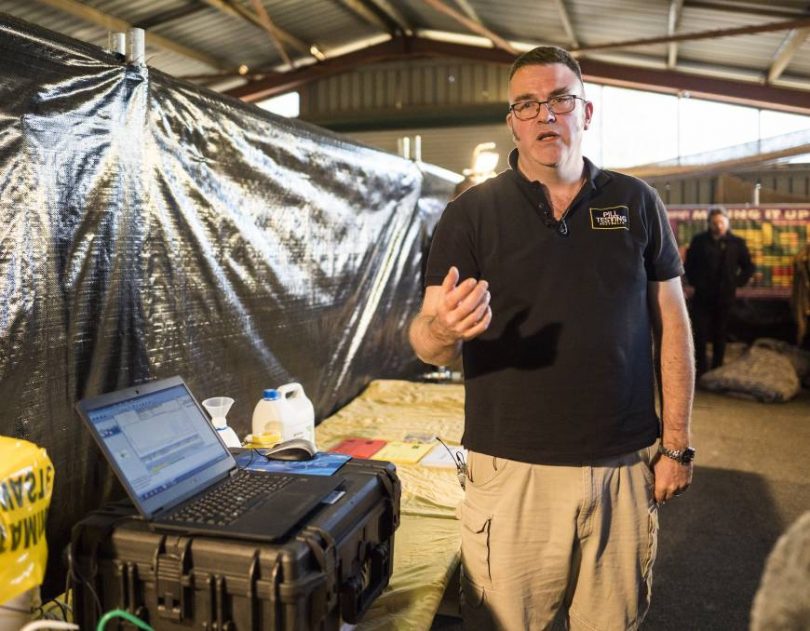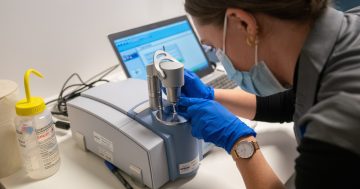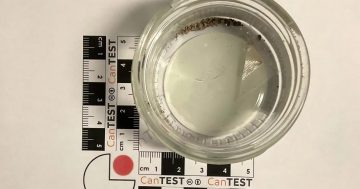
Dr David Caldicott inside the pill testing site at Groovin the Moo festival. Photo: Supplied by Pill Testing Australia.
Pill Testing Australia is calling on the ACT Government to introduce a fixed-site pill testing service in the nation’s capital as the consortium releases its detailed report on the second Australian pill testing pilot conducted at Canberra’s Groovin the Moo festival in April.
The report made 10 recommendations, which included the ACT Government to fund the service at future music festivals in Canberra after Pill Testing Australia said it would not run its service for free at future festivals in the ACT.
Dr David Caldicott, who ran the service at the music festival, also recommended the ACT Government introduce a fixed-site pill testing service within the ACT, given the success of the trial.
He said while drug use at music festivals is topical and controversial, the vast majority of harm associated with drugs occurs away from festivals.
Dr Caldicott pointed to the Netherlands’ Drug Information and Monitoring System (DIMS) which has 32 pill testing sites across the country and the WEDINOS system in Wales where people can send their drugs via post to a laboratory for analysis as two services that the ACT could implement.
“It makes sense to provide a service outside of the festival environment,” Dr Caldicott told Region Media. “In collaboration with some of our international colleagues, we are developing a proposal to put to the local government that we should establish a pill testing site in the ACT, building on from the successes that we have achieved so far.
“The precedent is quite clearly there, so this is not a question of evidence but of political will.”
ACT Greens leader Shane Rattenbury believes a pill testing site in the heart of the city could provide a service for late-night revellers on the weekends, suggesting the service could run regularly alongside the CBR NightCrew.
Dr Caldicott said there are a number of different locations where the ACT Government could deploy a fixed site, each targeting a different demographic.
“Certainly within the nightclub environment is one option and the community of intravenous drug users is another option,” he said. “In a small jurisdiction, it depends on resources and community opinion.
“The ACT has led the way for pill testing at music festivals and I think it is fairly bold and innovative in its approach to drug policy. There is an adult dialogue occurring in the ACT, which in comparison makes other jurisdictions look positively schoolyard.
“No matter how strong our desire for people not to use drugs or our efforts at education and prevention, people will continue to use drugs. This is not to undervalue drug education and prevention programs, but rather to be realistic about their impact and the evidence of their effectiveness, particularly in the long-term.”
Pill Testing Australia’s report showed that the festival’s free service tested 170 substances for 234 participants, twice the number of tests conducted at the first pill testing pilot a year earlier. The tests discovered seven samples containing n-ethylpentylone, which is potentially lethal and believed to be responsible for several mass-overdoses overseas.



















